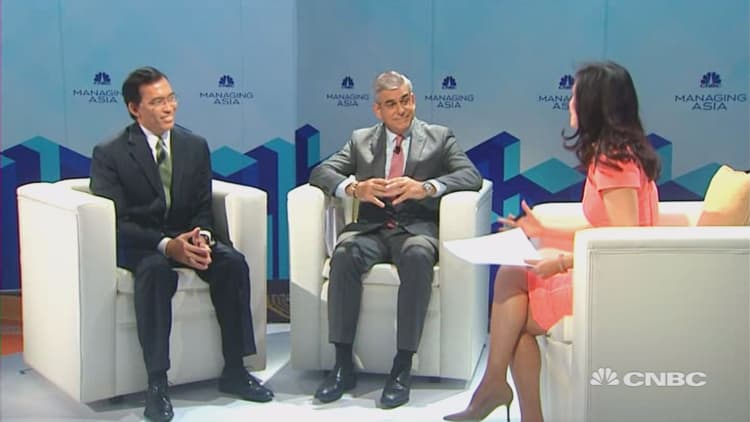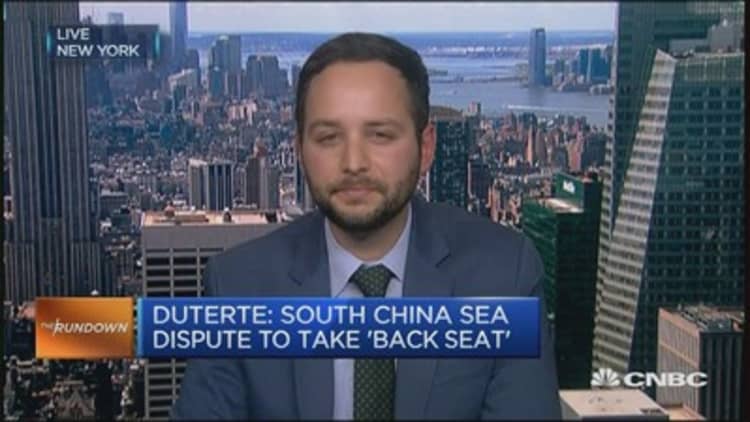
While uncertainty in the Philippines has increased since the arrival of President Rodrigo Duterte, leaders in the Philippine business community appear to be relatively sanguine.
On Thursday, Duterte sparked alarm by threatening to separate with the U.S. and ally instead with China. Understandably this has made investors in the fast-growing emerging market jittery.
Increased skittishness recently led to a sell-off in the stock markets, while the Philippine peso fell to a seven-year low against the U.S. dollar last month after the hard-talking Duterte described U.S. President Barack Obama with a derogatory term.
Nevertheless, the Philippine business community appears to be taking these developments in its stride, for now. Business leaders in the country are also confident that structural reforms are on the right track despite concerns that predictability in policy-making has diminished under the Duterte administration.
"The recent sell-off is probably a reflection of what's happening outside [the Philippines], where there are threats of the U.S. Federal Reserve increasing rates, so that increases volatility," said Hans Sicat, chief executive of the Philippine Stock Exchange, told CNBC during a panel on doing business in the Philippines. He also cited OPEC's oil production cut as another factor roiling global markets.
"While we [may] have headline risk … what hasn't changed as far as I can tell are the plans and the direction the economic team is taking," Sicat added.
One of those plans involves relaxing restrictions on overseas equity participation to attract foreign direct investment (FDI) to the country. While past attempts to ramp up FDI have met with resistance due to constitutional restrictions, Sicat is confident that change is afoot.
"I was actually heartened to hear the new administration come in and file a bill to … reduce the bureaucracy," said Sicat, "That's never happened before as far as I can remember."

Another of those economic reforms involves changes in the tax system, including plans to reduce corporate and individual tax rates. Unlike past administrations, the Duterte administration has demonstrated an ability to "move to execution fairly rapidly," said Jaime Augusto Zobel de Ayala, chief executive of the Ayala Corporation, one of the oldest conglomerates in the Philippines.
"One thing is words and the other thing is action. I have never seen [reforms] move so fast," Ayala added.
However, whether these measures will be sufficient in placating sentiments among the Philippine business community is something that remains to be seen.
"The proof of the pudding will be what we see by the end of next quarter (in terms of) investments continuing in … infrastructure projects," said Sicat. It will be a good indicator if an increase in government expenditure on infrastructure development is matched by private sector partnership, he added.
In the meantime, both business leaders pledged that they wanted to make a positive impact on the country, highlighting the need for greater inclusivity as the economy grows.
"This administration has stated that inequality is an issue … [and] it's important for the private sector to address the needs of all income groups and not just the group at the top," said Ayala, "It would make me happy to remain a progressive element and a relevant element in our society."



